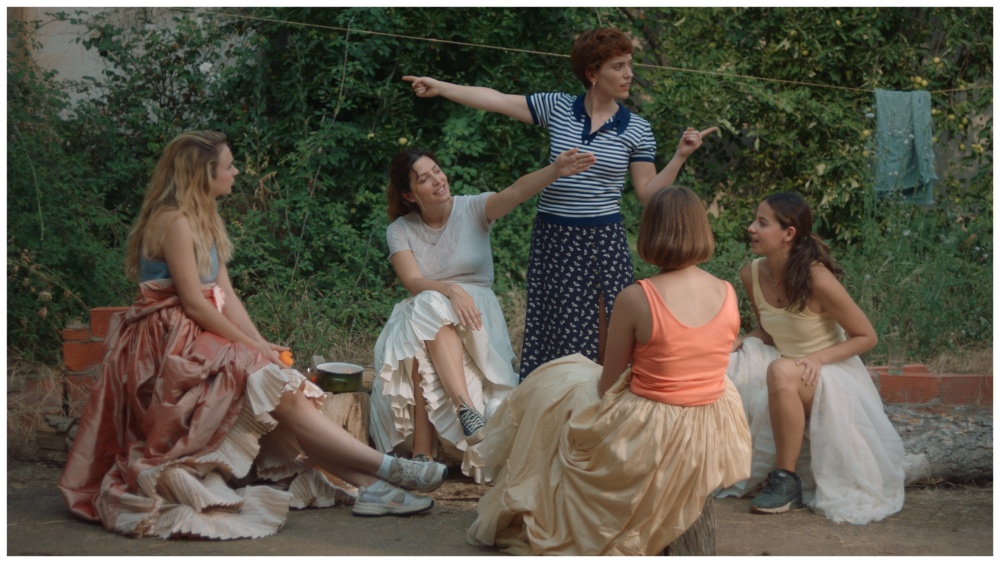In Itsaso Arana’s Directorial Debut ‘Girls Are Alright,’ Actresses Take Over the Film
Spanish actress Itsaso Arana proves that “Girls Are Alright” with her directorial debut, vying for the Crystal Globe at Karlovy Vary Film Festival.
Known to the festival’s audience thanks to Jonás Trueba’s “August Virgin,” which she also co-wrote, she is currently readying their next project, set to shoot in the autumn.
“That experience, as well as his other films I starred in, have been profoundly significant in my life. Jonás is a great inspiration,” says Arana. But after years of collaborations, however satisfying, she is ready to venture out on her own.
“I have always created collectively or in a partnership, and I needed to prove to myself I was capable of leading a project. For better or worse, it’s mine,” she says, calling the process “healing.”
“I feel like acting, writing and directing, at least as I experience it, are part of the same thing. These are all forms of expression I need, they make my life meaningful. And that’s what our time here is all about, right?”

Arana, who spent her career navigating between cinema and theater, decided to combine the two also in the film. Showing a group of women (Bárbara Lennie, Irene Escolar, Itziar Manero, Helena Ezquerro and Arana herself) heading to a remote house in the countryside to rehearse a play and braving the heat in their elaborate costumes.
“I have been doing it for more than half my life, but acting is still one of the most fascinating and mysterious jobs I know. I was interested in sharing that knowledge and my questions [about it] with other actresses,” she says.
In her “summer film” – produced by Los ilusos films and sold by Bendita Film Sales – they work together but also share personal stories.
“What scares us, what embarrasses us or what makes us doubt ourselves is the most valuable thing we have, as long as we are feeling heard. That’s precisely the dynamic that interested me, one where renewed strength comes directly from their shared fragility.”
She also plays with the medium itself, with her cast breaking the fourth wall by staring right into the camera. “It was essential that the actresses would take over the film,” she says. “It doesn’t break the illusion, I think. It actually renews this ‘pact’ between cinema and the viewer. Also, actresses constantly live in-between reality and fiction. We have a very strong sense of looking at ourselves from the outside.”
Is it a good moment for stories about women, made by women? Arana hopes so.
“There is no doubt that this new awareness of the feminine has awakened the world, but we mustn’t take a step back,” she says. Underlining that showing female relationships based on friendship and mutual trust, not conflict, was crucial.
“It’s a treasure to have a good friend, to have a sister. Actresses – and women in general – have been completely enslaved by the male gaze, a gaze that made us believe we should compete with each other. Let’s stop believing that story.”


